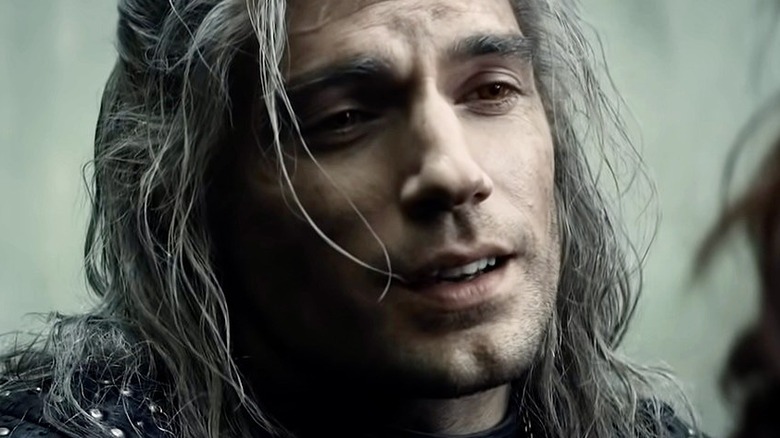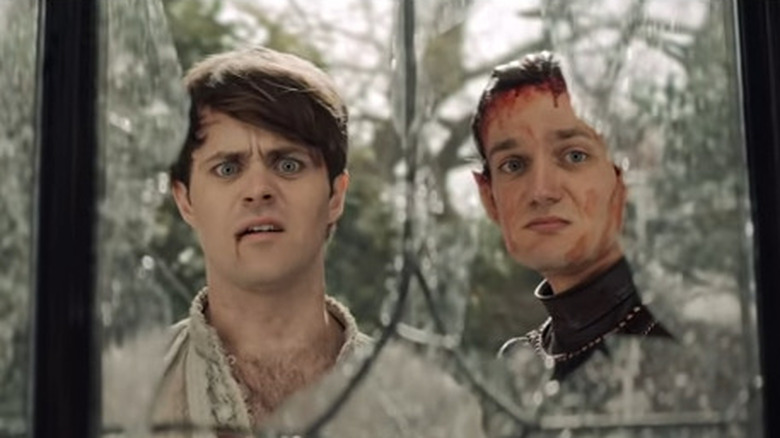Why The Witcher's Theme Song Means More Than You Think
A common criticism of film and television in the modern art space is how the music isn't compelling, engaging, or even original. In 2016, a slew of articles cited the YouTube channel "Every Frame A Painting," which believed the cause for this phenomenon stemmed from composers mimicking temp music (a term which means exactly what it sounds like it means).
Whatever the cause, Netflix's high fantasy series "The Witcher" doesn't seem to suffer from it. Based on Andrzej Sapkowski's novels of the same name, "The Witcher" features tunes that stick in your head long after the screen has gone dark. This includes lyric pieces performed by the questionably immortal Jaskier (Joey Batey), which are undeniable masterpieces, but today, the focus is on the instrumentals.
And, even more specifically, let's look at the theme piece, which has much more detail woven into it than anyone can be expected to notice upon the first listen.
The theme changes to fit each episode's tone
We've covered this before on a list of small details from "The Witcher" that are easy to miss but the intro theme, entitled "Geralt of Rivia" and written by composers Sonya Belousova and Giona Ostinelli, changes to match the specific tone of the episode. While the standard variant of the piece is an epic synth ballad, some episodes feature a wistful vocal performance or a somber marching rhythm. Some episodes don't have the intro theme at all — it simply depends on the specific needs of any given chapter in Geralt's narrative. In this way, the music sets the scene for the audience's emotions.
This indicates how music can elevate a story, and movies and television use this trick to inform viewer expectations. Consider Cartoon Network's "Teen Titans," which notably had a different theme for silly episodes so that fans knew not to take the following content too seriously ("Gravity Falls" did a version of this too for its dark finale). Another example is how trailers for the final installment in the disastrous "Hobbit" saga used a clip of music from the "Lord of the Rings" trilogy to showcase how dire the situations depicted therein were.
More productions may start to utilize clever composers rather than casual content because subtle details are easy to miss but powerful. Hence, whenever something like this comes to light, it's important to spread it around and share the joy of composition.

